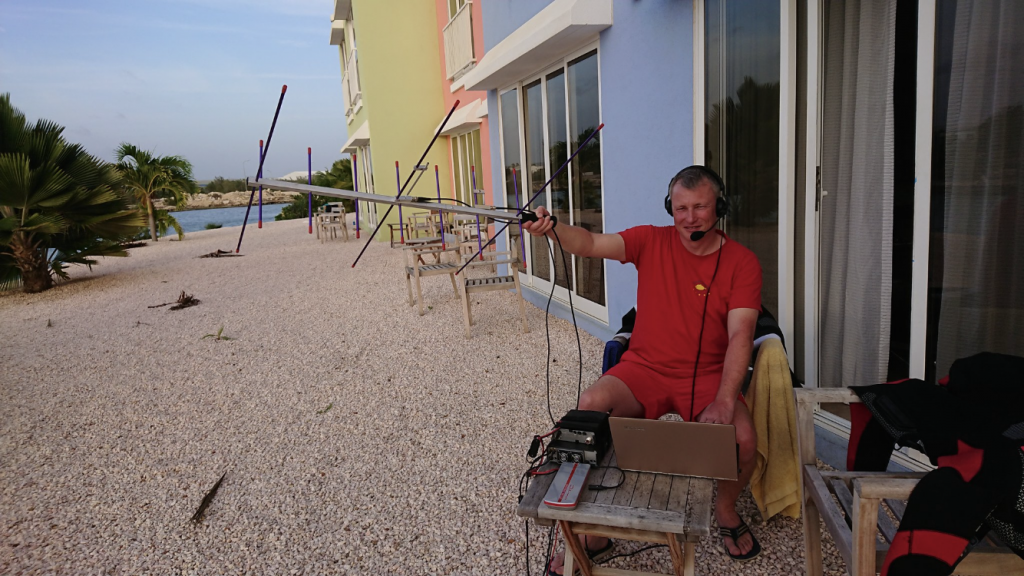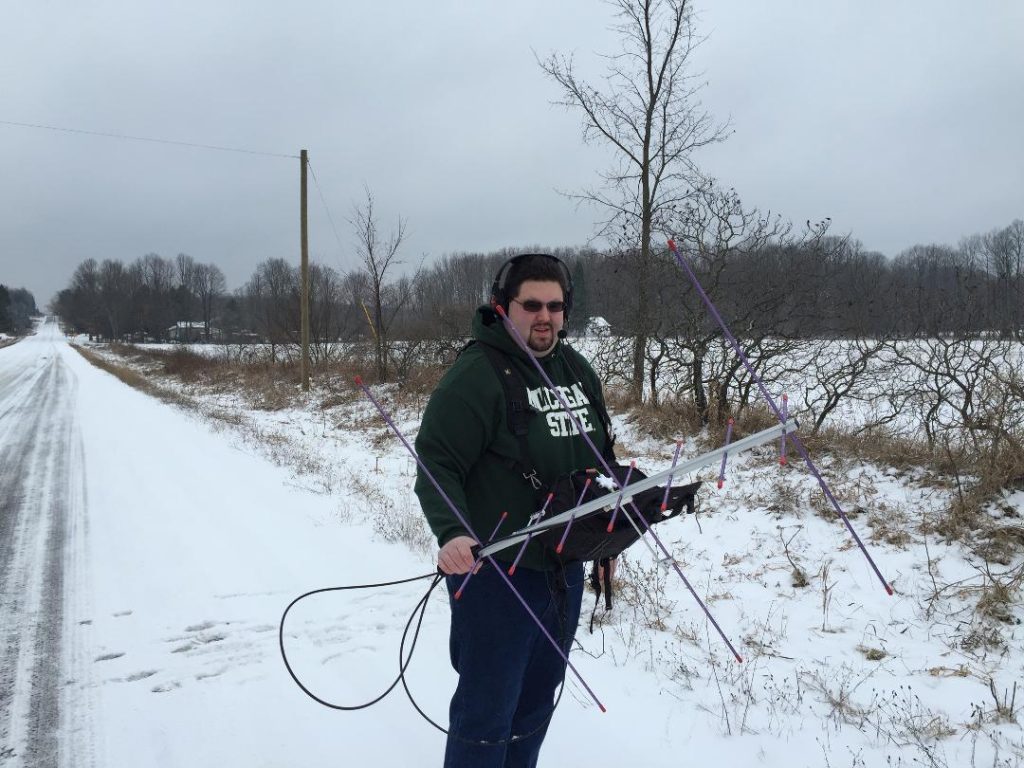Manners are a good thing. They help us make a good impression and build our reputation at work, school, or any social gathering. We generally like hanging out with positive people and not the grumpy, negative ones. Amateur Radio is no different. Hams want to make radio contacts without interfering with others trying to do the same thing. We all share our little corner of the radio spectrum—and a little courtesy can go a long way.
Satellite operating comes with several challenges, not the least of which is it is one of the ultimate shared resources in the hobby. While there are now several satellites to choose from, a given satellite is only above the horizon for a maximum of 15 minutes or so. Lots of people trying to access a satellite during a short window of opportunity can create problems, and that can bring out some undesirable behavior. There’s a natural sense of urgency that develops if a pass is close to ending and you still haven’t gotten through to a station you want to contact. In other cases, new operators—still actively learning how to hear and make it into a satellite—may not have been introduced to some of the finer techniques.
There are a few simple rules and operating tips that can make satellite passes more enjoyable and less frustrating for everybody. Some are common courtesy, some are technical in nature, and some are protocols that have developed over the years that new satellite operators simply don’t know yet. These tips will help make your satellite time more enjoyable and help you be a good team player on satellite passes. I wrote these tips primarily with the single-channel FM satellites in mind, but they could easily apply to the linear satellites as well. If you’re brand new to satellite operating, check out some of my earlier blogs to help you get started.

The Big One
For most of us, our Ham Radio mentors hammered into our heads this simple tip: Listen, listen, listen! For FM satellite operating, this definitely applies, but there’s an important corollary: Don’t transmit if you can’t hear the satellite first.
There are numerous passes where you can hear a whistler or somebody saying something along the lines of, “Hellllloooooo,” “Check one two,” or simply giving their call over and over. It becomes clear very quickly that they are trying to hear themselves through the satellite, an understandable goal. The problem is that they could actually be making it into the satellite when transmitting, disrupting the pass for other users. In most cases, you will hear other people on the satellite right when it comes up over your horizon.
If you don’t hear other activity, you’re probably not going to hear yourself, either. Blindly calling or whistling may cause unintentional interference to other stations that can properly hear the satellite.
Wait Your Turn
Just as you wouldn’t interrupt a conversation in person or step on a QSO in progress on HF, it’s bad form to call a station while they are trying to complete a contact on satellite or attempt to initiate a new contact before another QSO is finished. Given the rapid nature of satellite contacts, you shouldn’t have to wait very long for your chance during a pass.
Use Phonetics at All Times
It’s easy in the heat of a pass to simply say your call as fast as possible when making a contact. However, even on FM satellites, certain letters sound the same. B, C, D, G, P, T, V, and Z are strikingly similar. Please always use standard international phonetics when giving your call over the air. Phonetics help ensure your call is copied correctly the first time and can save a lot of precious moments during a short pass.
Minimize Repeat QSOs
It is understandable to want to say hello to a friend during a satellite pass. But keep in mind the scarcity of time available during a pass; each contact you make with a person you’ve already had several contacts with prevents another person from making a contact. That person may be new to satellite operating or trying to work a rare station. If a pass is particularly busy, consider whether you really need to make another contact with a station you’ve already worked several times.

Let Rare Stations Have More Time
Most satellite ops are chasing various operating awards, such as the ARRL’s VUCC for working over 100 different grid squares, Worked All States, or even DXCC. As on HF, satellite operators will go to significant trouble and expense to transmit from some rare locations. In other cases, genuine DX stations can be heard in the U.S. on satellite, especially from the Caribbean and Central and South America.
It is true that you have the right to be on any satellite pass you can access and can try to work stations at a pace and in a manner you choose. It is also true that satellites are available to all, regardless of where you are or how rare your operating location is. However, try and have some consideration for a station that is operating portable or in a rare location; they may only be at that location for the day, or even a single satellite pass.
It may be best to let the rare station have the pass and try to work as many stations as they can. In some cases, the rare station may only be audible for a portion of the pass you’re on, with the station moving out of the satellite’s footprint before it moves out of range for you. That would leave you with some portion of the pass to try and work stations. If you’re operating from home, there will always be another pass or another satellite you can work.
How do you know if there will be a rare station on during your pass? Check the AMSAT Upcoming Satellite Operations page for the latest news. In addition, many active grid rovers use Twitter to post real-time updates on operation schedules. Search for #AMSAT to find posts from active satellite operators, and follow @AMSAT as well. Of course, listening before transmitting is still the best way to tell who’s on a pass.
Satellite activity is at an all-time high, with new sats being launched on a regular basis and more operators discovering how much fun there is to be had. By being mindful of others trying to make contacts and thinking of others on the pass, we can all contribute to a better satellite environment for everyone.
Have a question about satellite etiquette? Drop me a line! [kx9x@yahoo.com]


Pingback: 5 Tips on Etiquette and Good Manners on the FM Ham Radio Satellites - Ham Radio News
Pingback: ANS-047 AMSAT News Service Weekly Bulletins for February 16th – AMSAT
Pingback: 5 tips over etiquette en goede manieren op de FM-satellieten - VERON